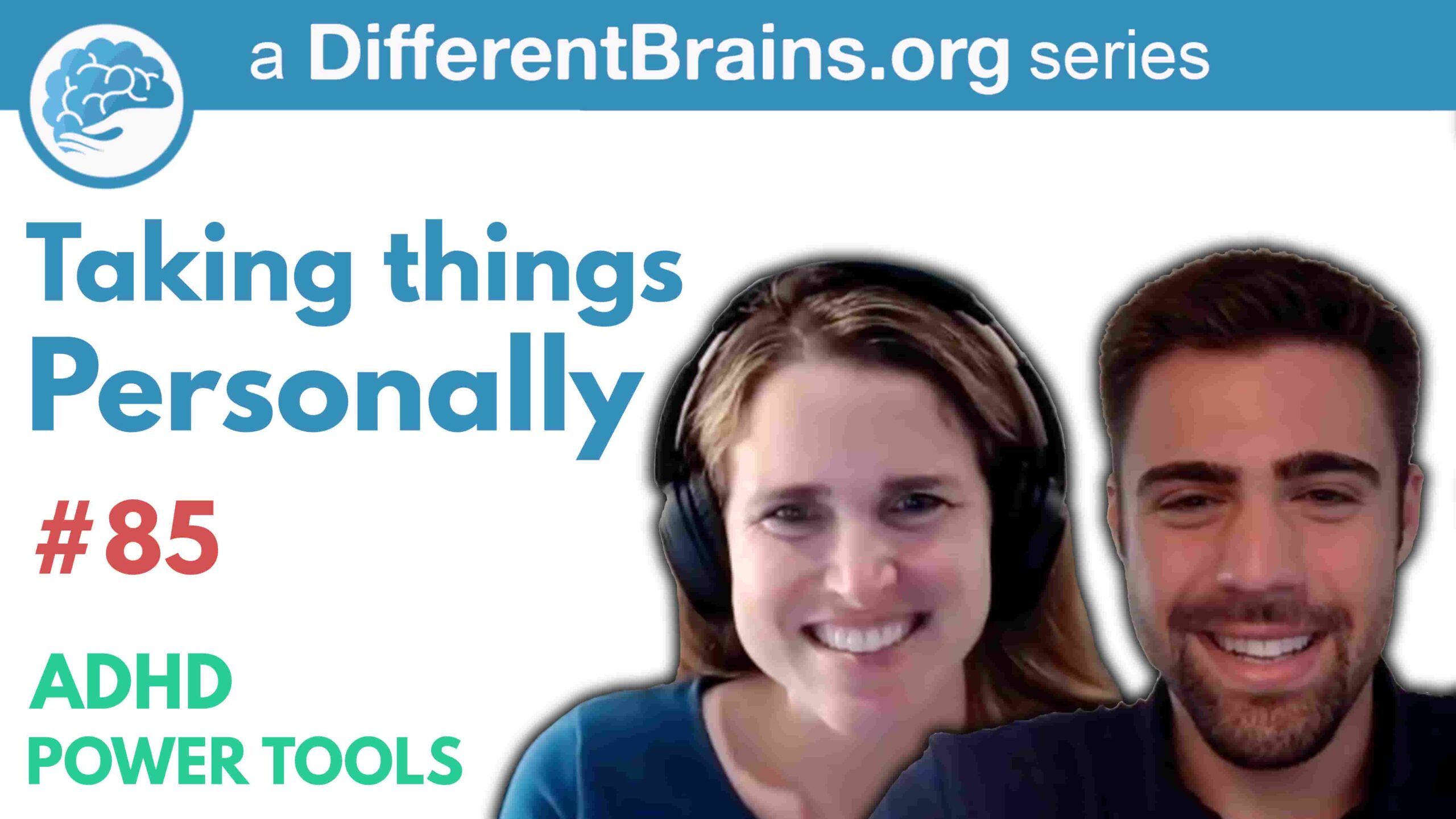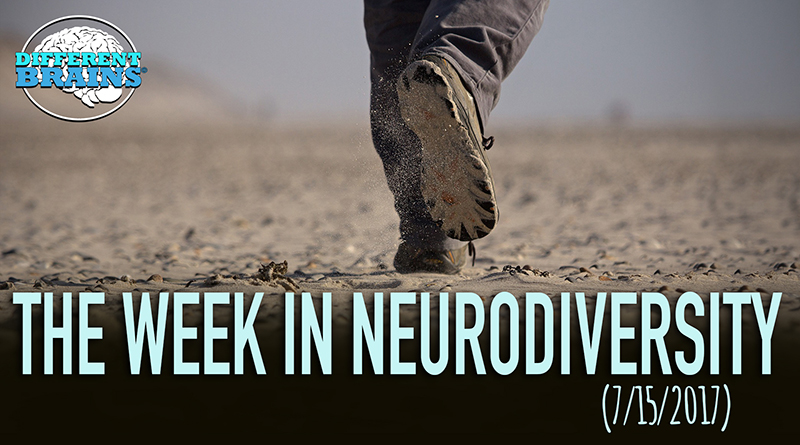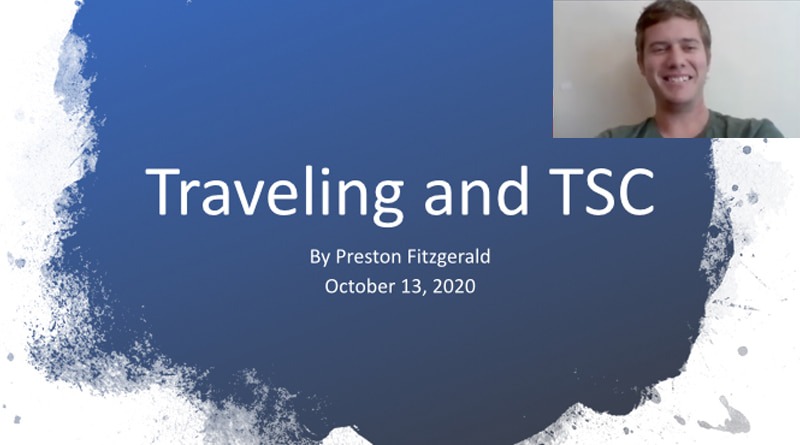2019 in Review: Advice For Every Brain, w/ Dr. Nancy Doyle, Dr. Debbie Joffe Ellis & more | EDB 192
2019 in Review: Clinicians, Advocates & Change-Makers
(13 minutes) In this annual two-part special episode we cover some of the highlights from of Exploring Different Brains in 2019. In this second part, we are going to hear from of the dedicated clinicians, specialists, educators, advocates, and change-makers working to improve the lives of those of us with Different Brains: Sandra Cumper (executive director of NAMI [National Alliance on Mental Illness] Broward), Ed Harrold (author, motivational speaker, inspirational, educator, and breathing expert ), Dr. Cholet Josue (psychiatrist, neuroscientist, physician, and author of the book “12 Unending Summers: Memoir of an Immigrant Child”), Flip Aguilera (holistic wellness coach), Dr. Marcie Ratner (world-leading neurotoxicologist and research scientist at the Boston University School of Medicine), Dr. April J. Lisbon (autism coach/strategist/mom, school psychologist, and author), Herag Haleblian And Jessica Lee (co-founders of The Spectrum Works – and organization dedicated to helping people with autism find employment), Dr. Nancy Doyle (occupational psychologist, CEO and Founder of Genius Within CIC, and featured on A&E’s “The Employables”), and Dr. Debbie Joffe Ellis (celebrated psychologist, REBT proponent, and adjunct professor at Columbia University).
For more about the guests featured and their full interviews:
Sandra Cumper: namibroward.org For her full interview, click here
Ed Harrold: edharrold.com For his full interview, click here
Dr. Cholet Josue: drjosue.com For his full interview, click here
Flip Aguilera: sweatnation.world For his full interviews, click here
Dr. Marcie Ratner: neurotoxicants.com For her full interview, click here
Dr. April J. Lisbon: advocacycoaching.com For her full interviews, click here and here
Herag Haleblian And Jessica Lee: www.thespectrumworks.org For their full interview, click here
Dr. Nancy Doyle: geniuswithin.org For her full interviews, click here and here
Dr. Debbie Joffe Ellis: debbiejoffeellis.com For her full interviews, click here and here
AUDIO PODCAST VERSION:
Or look for us on your favorite podcast provider:
iTunes | Stitcher | SoundCloud
FULL TRANSCRIPTION
Advice from Change-Makers
HAROLD REITMAN (HR): Hi, I’m Dr. Hackie Reitman. Welcome to this special two-part episode covering just some of the highlights from Exploring Different Brains in the year 2019. In our second part, we’re going to hear from some of the dedicated clinicians, specialists, educators, advocates, and change-makers working to improve the lives of those of us with Different Brains.
SANDRA CUMPER
HR: Our audience watching here at differentbrains.org, what can they do to end the stigma of mental health issues?
SC: We can talk about mental health; we look for an audience and pour on every person, not to be afraid to talk about mental health. It affects every person, at different levels. It – mental illness may not affect you directly, but indirectly, everything that comes with it. The taxes you pay, being able to get medical care, indirectly, mental health affects us all. We see people living on the streets who are homeless. We have to pay for those people to get treatment in our hospitals. So we wanna be able to talk about mental health, we wanna be able to talk about recognizing the signs and the symptoms. We invite the audience to be apart of our programs, and to understand it so they too can go out and tell their family members, and to encourage those who are living with mental illness to get the treatment they need.
ED HARROLD
EH: Let’s face it, the brain is in charge, at the surface level we’re all moving through or alive. The brain is actually deciding what our hormonal secretions are going to be. The one thing that really was one of the greatest control over is our breathing. And if there is anxiety in your life, or there’s higher stress levels, number one is slow your breathing down. Don’t let that stress or bring your heart rate up and start to hyperventilate and breathe. And it just throws off that natural rhythm that the body has to move through a 24-hour cycle. So, most folks it’s close the mouth, slow the breathing down relax and do whatever is coming and know that it’s traveled very far to help you.
CHOLET JOSUE
CJ: So, here’s what we know about the human brain: when we’re born, the act of being birthed into the world, being born into the world is actually very tragic, scary stuff. As children, the world is very scary, and so, we need the comfort of the environment of the people around us. So, a little child goes somewhere and knock his or her head against a wall. They’re going to run to the people that comfort them, that give them food and water and shelter, so nature has it that way. The brain is… the world is new and scary, so if you’re comforted against obstacles in the world, and the people there, where you grow up, they reinforce it, that builds resilience. That teaches you the world is not totally bad. So growing up in Haiti, we didn’t have the luxury of first world. But what kids needed – need – is a community, people to make you believe in yourself, and I was fortunate by the time I was 11, I knew I could rule the world. My parents taught me to respect people, to be kind, but also to believe that it’s not only about you. Then, once you know that and you – growing up – and you didn’t know you were going to overcome obstacles, but what the early nurturing gives you – that the world’s not totally bad, that there are good people. You know, there are bad things that happen, but that nurturing that’s ingrained in your brain early makes you believe in people in the world.
FLIP AGUILERA
FA: First and foremost, the thing that I protect with all my might is my sleep. Sleep is the lowest hanging fruit we can all pick to optimize our health. Second, after that is where I put my purposeful movement. And then third, I put nutrition. And something that we haven’t touched on yet, but it’s just as important of all of this, is the people you surround yourself with, the social network you have around you. Are they feeding you, or are they taking away from you? Do you have an uplifting feeling when you’re hanging out with the people you hang out with, or a sinking feeling when you’re hanging out with the people you’re hanging out with? Because I know you’ve probably heard of it like all these areas of the blue zones. And some of these blues zone areas, there is movement. There’s sleep, there’s nutrition. But in some of these places, people smoke left and right because they have strong social connections, it mitigates that negative aspect of whatever it is that they’re doing. So that’s how I try to plan. Hang out with cool people, move on purpose, sleep well, and eat well.
MARCIE RATNER
HR: How do we protect ourselves from unnecessary exposure to neurotoxicants?
MR: Begins with good hygiene, and that means if you’re doing any sanding or working with old lead paint, you’re gonna want to wear a mask, you’re gonna want to wear gloves, and you’re going to want to maybe wet the surface down so that the dust stays down and doesn’t spread all over, and then cleaning things up, you need to be careful. There are terrible stories of people who tried to vacuum up Mercury that has spilled from a broken thermometer, and what they’ve done is their vacuum cleaner – this was mostly in the days before HEPA filters and some of the vacuums that we have now, but the vacuum cleaner actually vaporized the mercury, put it in the air, and exposed everyone who was in the room where as had they swept up the mercury with a dust pan into little balls of mercury, they would not have caused as much of a problem so there are a lot of things we can do from the hygiene standpoint to reduce exposure: Masks, gloves, coveralls, and also when we’re cleaning things up we want to think about the consequences of vacuuming versus sweeping and creating more dust or vaporizing a chemical and can be breathed in that way.
APRIL J. LISBON
AL: I want to be a voice in the wind for those families who feel like their voices have been, I don’t know if cut off is the right word, but who feel like they they cannot express their emotions and their feelings. I want to be that voice for those parents who are always apologizing. I used to be one of those parents. “I am so sorry that he’s doing this, oh. I’m so sorry he really didn’t mean to have this meltdown.” Apologizing because my child’s brain is different, I shouldn’t have to apologize because that’s who he is. That’s what he’s about. And I want to be that voice for other parents to realize, and understand that it is okay to have a child who learns differently. What’s not okay, is that we accept from society that plain and simple, our kids aren’t good enough or that we can talk about our child’s different diagnoses, mental disabilities. Yes, we can. We have a right just like every other parent. We need to bring awareness and more acceptance to what our families go through every single day. So by creating a voice–like I tell people, God gave me a big mouth anyway so I might as well use it for good.
HERAG HALEBLIAN AND JESSICA LEE
HR: Spectrum Works truly gives the message of inclusivity. We’re talking about mainstreaming where you can fit and having the corporations understand: yeah, if we give a little bit of accommodation here, you’re going to have a great employee, a loyal employee who’s going to do a great job for you.
JL: And I think what’s been really inspiring and encouraging to see is at other corporations where they have started to do this, that the quote-unquote “accommodations” for the individual on the spectrum is actually good for everybody. It’s made managers better managers because they’re, you know, managing to the individual needs of their employees, and that’s better for every employee that steps into a job. So you really see that the benefits to the business far outweigh… I mean, first of all, they’re a good fit for the job. They have the skills and abilities and even may have… be better at a certain job but also that it raises the culture of the company and it improves so many other processes of the organization as well, so this is a true business value decision.
NANCY DOYLE
ND: I couldn’t understand why we call things, or we used to use terms like Specific Learning Disabilities, you know? If it’s a Specific Learning Disability, there’s something specific that’s an issue, but everything else is fine. So why aren’t we talking about the everything else that’s fine. You know? So there’s a whole movement in psychology the positive psychology movement which has been around for a long time, this is something that I studied, and I thought was very interesting, and I just was finding myself very frustrated that I was meeting people but for coaching support, who had psychology reports, and I would read their psychology reports, and I would look at the data in it, and it would say things to me like this person has been the top percent of population for verbal skills, and they would have no idea about that- what they knew about was that their spelling was terrible, or their concentration was poor, or their social skills were difficult- they had no idea that they had this tremendous ability in verbal reasoning, and I would think to myself, “Well wow, what a difference that made when I told you that” you know, but then the next logical step is, why do you need an extra person to tell you that, when you already had psychological assessment? Surely apart of the psychological assessment should be to allow you to know the full range of your abilities- the things you’re struggling in and what to do about it, but also the things that you’re great at, and how to work with that.
DEBBIE JOFFE ELLIS
DJE: The importance, especially at this time, of tolerance. Which comes from making the effort to have unconditional acceptance of others; others who have political beliefs we may not agree with, or certain people in positions of power politically, or in the work environment, or family members. The expression, hanging on to rage or bitterness or hatred is like eating poison and waiting for the other person to die, and so we’re hurting ourselves, we’re not even hurting the person we dislike, you know, and so to choose to create a climate of tranquility within us, that can only be created by thinking in healthy ways, because life will contain lots of suffering. Now when we think in healthy ways, we minimize the emotional suffering, which means we liberate more energy to enjoy.




